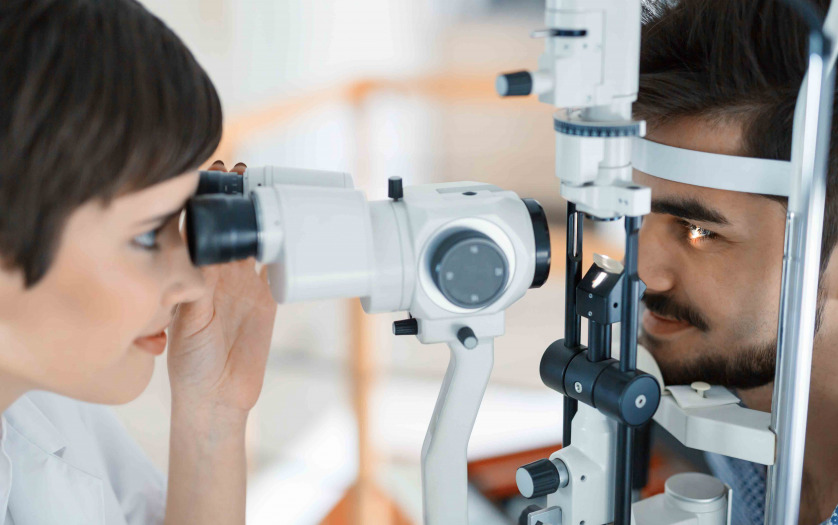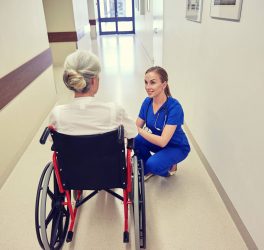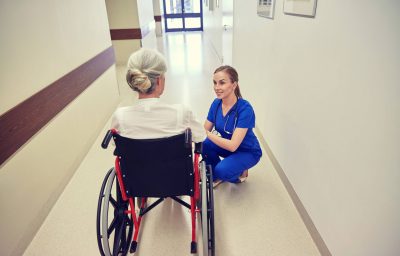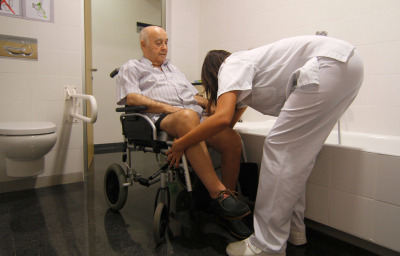
African Caribbean people with type 1 diabetes are at 39% greater risk of developing sight-threatening diabetic retinopathy, which if untreated can lead to blindness.
The paper, published today in Diabetes Care and led by researchers from King’s, adds much needed evidence to show the relationship between ethnicity and type 1 diabetes-related retinopathy.
Diabetic retinopathy is caused by high blood sugar levels damaging the retina, which is located at the back of the eye. It can take years for diabetic retinopathy to threaten eyesight if not diagnosed and treated. Diabetic retinopathy is the leading cause of blindness in working age people in the UK and many other countries.
The study followed a diverse population group from South London over six years who had type 1 diabetes but no signs of retinopathy. By the end of study, they found African Caribbean ethnicity is a risk factor for sight-threatening diabetic retinopathy, even when adjusted for traditional risk predictors such glucose control and blood pressure as well as socioeconomic status. The study also found the African Caribbean and the Caucasian group, which had the least risk, attended the same number of eye screenings.
Researchers warn that more thorough eye exams are needed for at-risk groups.
We undertook this study because there is no previous studies in people with type 1 diabetes of the potential impact of ethnicity on diabetic retinopathy. Our novel observation that people with type 1 diabetes of African Caribbean ethnicity are at 39% greater risk of sight threating retinopathy independent of conventional risk factors suggests that enhanced retinal surveillance and risk factor control may be needed in such higher risk groups.– Dr Janaka Karalliedde, Clinical Reader in Diabetes and Cardiovascular Diseasenone
Hilary Nathan policy director at JDRF, the type 1 diabetes charity said ‘Sight loss is devastating. This is important research because it helps us begin to understand how rates of type 1 diabetes disease progression can be more aggressive across different ethnicity patient populations. Findings like these can help evidence and design more personalised treatment pathways helping to prevent sight loss and disability.”
Miss Evelyn Mensah, Clinical Lead for Ophthalmology at London North West University Healthcare NHS Trust, who was not involved in the study, said: “Since the Covid-19 pandemic, there has been sharp focus on the ethnic health inequalities that currently exist. Previous studies have traditionally aggregated non-white ethnic groups into Black, Asian and minority ethnic. Identifying that the risk of sight threatening diabetic retinopathy is 39% greater in African Caribbean people is a shocking finding. Evidence suggests racial differences in central retinal thickness (CRT) measurements where the CRT is thinner in Black people compared to their white counterparts. This means more fluid would be required in a thinner macula compared to a thicker macula to be eligible for NICE approved intravitreal anti-VEGF treatments.
“In addition, data from the Diabetic Retinopathy Clinical Research (DRCR) Retina Network clinical trials suggests underrepresentation in the enrolment of Black participants compared with the expected disease burden and racial distribution of diabetic retinopathy. The work by King’s College London researchers is a significant contribution to the body of evidence that health inequalities exist for Black people with Type 1 diabetes. Further analysis is required to determine the reasons why this disparity exists.”
The study was funded by Guy’s & St Thomas’ Charity and involved academics and clinicians from King’s Health Partners.








